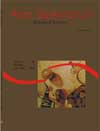Evaluation of zooplankton groups in experimental ponds with the use of different organic substrates
Abstract
Aiming to determine the influence of organic fertilizer on zooplankton organism community twenty 1,000 liter ponds were used distributed in four treatments with poultry, cattle, rabbit or pig manure with five replicates in a complete randomized design. Planktons were collected every three days whose physical and chemical parameters were monitored and qualitatively and quantitatively analyzed. Poultry manure showed to be the best fertilizer followed by pig, cattle, and rabbit fertilizer respectively for plankton density in which Brachionus sp, Keratella sp, Vorticella sp and Copepoda's nauplius predominated. Therefore cattle and rabbit manure led to lower species diversity. The results led to the conclusion that the manure used exerted a greater influence on zooplankton structure and biomass and that poultry and pig manure provided the greatest organism densities.Downloads
Download data is not yet available.
Published
2008-05-09
How to Cite
Faria, A. C. E. A. de, Hayashi, C., Soares, C. M., & Gonçalves, G. S. (2008). Evaluation of zooplankton groups in experimental ponds with the use of different organic substrates. Acta Scientiarum. Biological Sciences, 22, 375-381. https://doi.org/10.4025/actascibiolsci.v22i0.2858
Issue
Section
Biology Sciences
DECLARATION OF ORIGINALITY AND COPYRIGHTS
I Declare that current article is original and has not been submitted for publication, in part or in whole, to any other national or international journal.
The copyrights belong exclusively to the authors. Published content is licensed under Creative Commons Attribution 4.0 (CC BY 4.0) guidelines, which allows sharing (copy and distribution of the material in any medium or format) and adaptation (remix, transform, and build upon the material) for any purpose, even commercially, under the terms of attribution.
Read this link for further information on how to use CC BY 4.0 properly.
0.6
2019CiteScore
31st percentile
Powered by 

0.6
2019CiteScore
31st percentile
Powered by 











1.png)




3.png)













